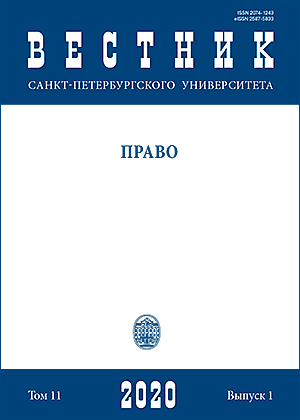The problem of criminal sanctions in China: Current situation and prospects
DOI:
https://doi.org/10.21638/spbu14.2020.112Abstract
China’s penal code of 1997 is based on behavioral criminal law. The definition of crime is grounded in the theory of the classical schools of criminal law which believed that only the outside behavior of people should be subject to criminal law evaluation. The object of punishment in criminal law is precisely the behavior that endangers the society. Correspondingly, when the actor carries out behaviors that endanger society, they should bear criminal responsibility according to the provisions of the criminal code. Punishment is the main form of criminal responsibility in China. China’s social prosperity and unprecedented risks and challenges precede the country’s rapid economic growth and China’s criminal law must be changed accordingly. The criminal law concepts of classical schools, based on “behavior,” are facing a series of dilemmas in using criminal law to fight crime and protect human rights. In light of this, the criminal sanctions by the standards of Personal Dangerousness have been gradually strengthened in the Chinese criminal code. The Criminal Law Amendment (8) added the regulation on provisions of Criminal Restraining order in 2011. The Criminal Law Amendment (9) added the occupational prohibition system in 2014. Both systems are not aimed at punishing committed crimes, but at the prevention of unexpected crimes. The basic trend of China’s criminal sanction reform is to change the traditional criminal sanction function, which mainly focuses on punishment, and to increase the security sanction system accordingly.
Keywords:
Criminal Law of China, Criminal Concept, Classical Schools of Criminal Law, Criminal Responsibility, Penalty, Personal Dangerousness, Amendment to Criminal Law, Criminal Sanctions
Downloads
References
Downloads
Published
How to Cite
Issue
Section
License
Articles of "Vestnik of Saint Petersburg University. Law" are open access distributed under the terms of the License Agreement with Saint Petersburg State University, which permits to the authors unrestricted distribution and self-archiving free of charge.






